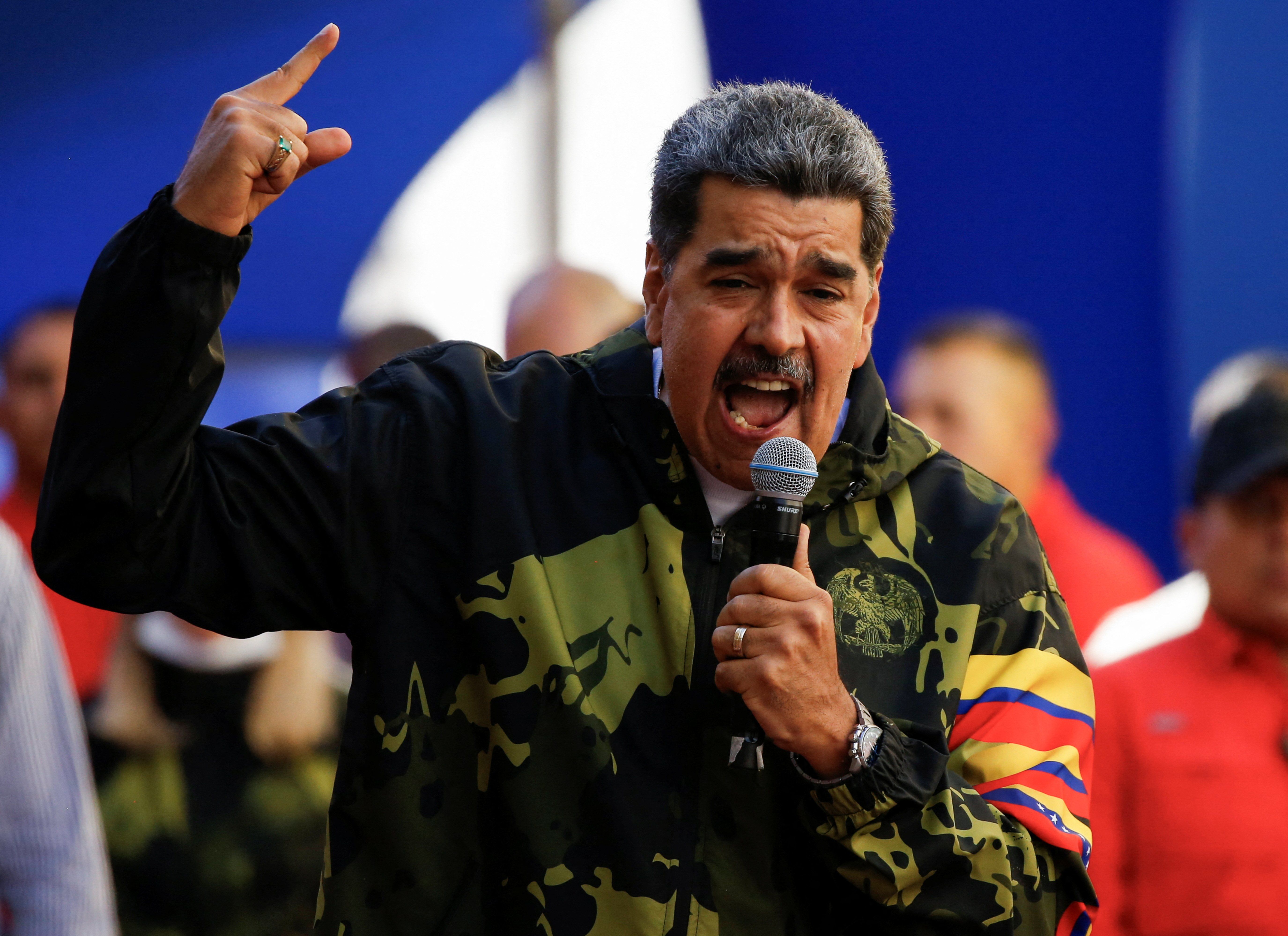Maybe there was never a good enough carrot to get Venezuelan President Nicolas Maduro to hold a real election, but with his latest move, the “21st-century socialist” strongman seems willing to suffer the stick rather than face his voters.
Last week, his top court disqualified popular opposition leader Maria Corina Machado ahead of presidential elections that must be held later this year. That move violated a 2023 deal with the US in which Washington loosened crippling sanctions on Venezuela’s lucrative oil sector in exchange for a promise to hold a free vote.
That deal aimed to nudge Maduro towards democracy, but also to help stabilize the economy in hopes of stemming a record-high tide of Venezuelan migrants streaming towards the U.S. Southern border.
But Maduro wants no part of Machado, who experts say would beat him in a fair vote, so he’s willing to risk those US sanctions again, says Venezuela expert Risa Grais-Targow at Eurasia Group. They’d force Venezuela to sell more of its oil at a discount to Asia, but Maduro will gladly take the cash flow hit rather than lose an election.
This puts the White House in a bind: Doing nothing makes Biden’s policy look like a failure, but slapping sanctions back isn’t a great option either. They won’t move Maduro on the democracy front, but they could potentially exacerbate the border crisis right as Biden heads into the homestretch of an election campaign where immigration is already a scorching issue.
Is a compromise possible? Maduro might be OK with a free election so long as he’s sure to win. If the move to disqualify Machado causes the opposition to split between people who boycott the election and those who don’t, he might stand a chance. The Biden administration seems keen to explore options – the oil sanctions won’t slap back on until April (in the meantime, Washington has rapped Maduro’s knuckles with sanctions on Venezuelan gold.)
One thing Biden doesn’t have to worry about as much as you’d think? Gas prices. Losing Venezuelan crude might hurt some US oil refiners, says Clayton Allen, a US expert at Eurasia Group, but “It’s not enough for Joe Sixpack to notice at the Circle K.”
